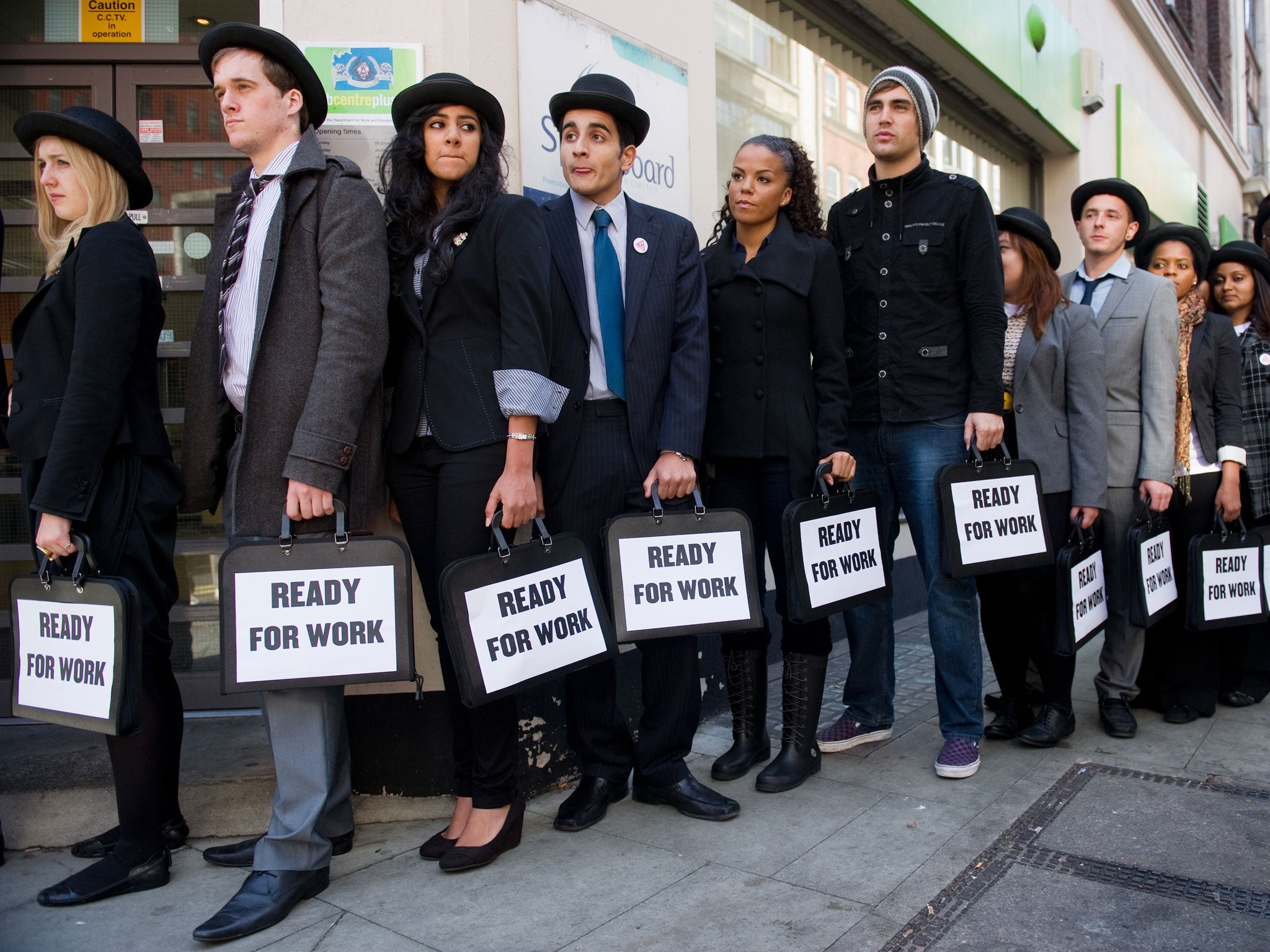Less than Zero: Zero-hours contracts are just the latest means of eroding employee rights
Thanks to twenty years of de-regulation, downward pay settlements, anti-union legislation the workforce has accepted the mantra of the 'flexible market economy'


Your support helps us to tell the story
From reproductive rights to climate change to Big Tech, The Independent is on the ground when the story is developing. Whether it's investigating the financials of Elon Musk's pro-Trump PAC or producing our latest documentary, 'The A Word', which shines a light on the American women fighting for reproductive rights, we know how important it is to parse out the facts from the messaging.
At such a critical moment in US history, we need reporters on the ground. Your donation allows us to keep sending journalists to speak to both sides of the story.
The Independent is trusted by Americans across the entire political spectrum. And unlike many other quality news outlets, we choose not to lock Americans out of our reporting and analysis with paywalls. We believe quality journalism should be available to everyone, paid for by those who can afford it.
Your support makes all the difference.My dad was a docker who was a beneficiary of the National Dock Labour Scheme, introduced in 1947 by Atlee’s Labour government in an attempt to give dock workers job security and end casualisation. Even though he was on strike for better pay and conditions throughout the 70s and 80s, until he made redundant in 1985, my dad regarded the NDLS as a triumph for unskilled men like himself.
Of course, the employers and the Tories railed against these improvements and derided them as a ‘job for life.’ They were no such thing, but the label stuck. Unlike politicians, who truly have jobs for life, the dock workers were targeted by Thatcher’s government as another ‘enemy within’ and the NDLS was abolished in 1989, leading to mass strike action.
New Labour then betrayed the dockers again failing to support those who had been sacked by the Mersey Docks And Harbour Company in 1995. The economic battle lines of middle-ground party politics had been drawn up and GBPLC would never again submit to the ‘wrecking tactics’ of the unions.
So, here we are in the Flexible Workforce Utopia that Thatcher, Major, Blair, Brown and Cameron have sold us as a panacea for all economic ills. The Chartered Institute of Personnel and Development’s (CIPD) report that more than a million workers are now on zero hours contracts is yet another nail in the coffin for job security and employer social responsibility. Thanks to the last twenty years of de-regulation, downward pay settlements, anti-union legislation the ‘flexible workforce’ has accepted the mantra of the small government fanatics.
The so-called ‘benefit trap’ and the demonisation of those placed on disability benefits by successive governments camouflages the true level of unemployment. This concurrent rise of zero-hour contracts is no coincidence. The old model of employer/employee contracts, those pesky, Nanny State impositions such as sick pay, holiday pay, National Insurance contributions and pensions have gradually been erased from millions of contracts. From the point of view of unscrupulous employers, all that now holds them back is 'red tape', 'health-and-safety-gone-mad', European law and Human Rights ;.legislation.
In a culture that worships the ‘entrepreneur’ from Branson to Sugar, the horrors of the Bangladesh factory collapse and the horsemeat lasagne scandal are a throw back to the good old days of Victorian economic values. Whether you are an Indian sweatshop workers, a Chilean farmer, a UK call centre clerk, an American hotel maid, a Chinese factory hand, you at totally at the mercy of the ‘flexible market’ economy. And if you don’t like it, then there are millions out there who will undercut you.
Join our commenting forum
Join thought-provoking conversations, follow other Independent readers and see their replies
Comments